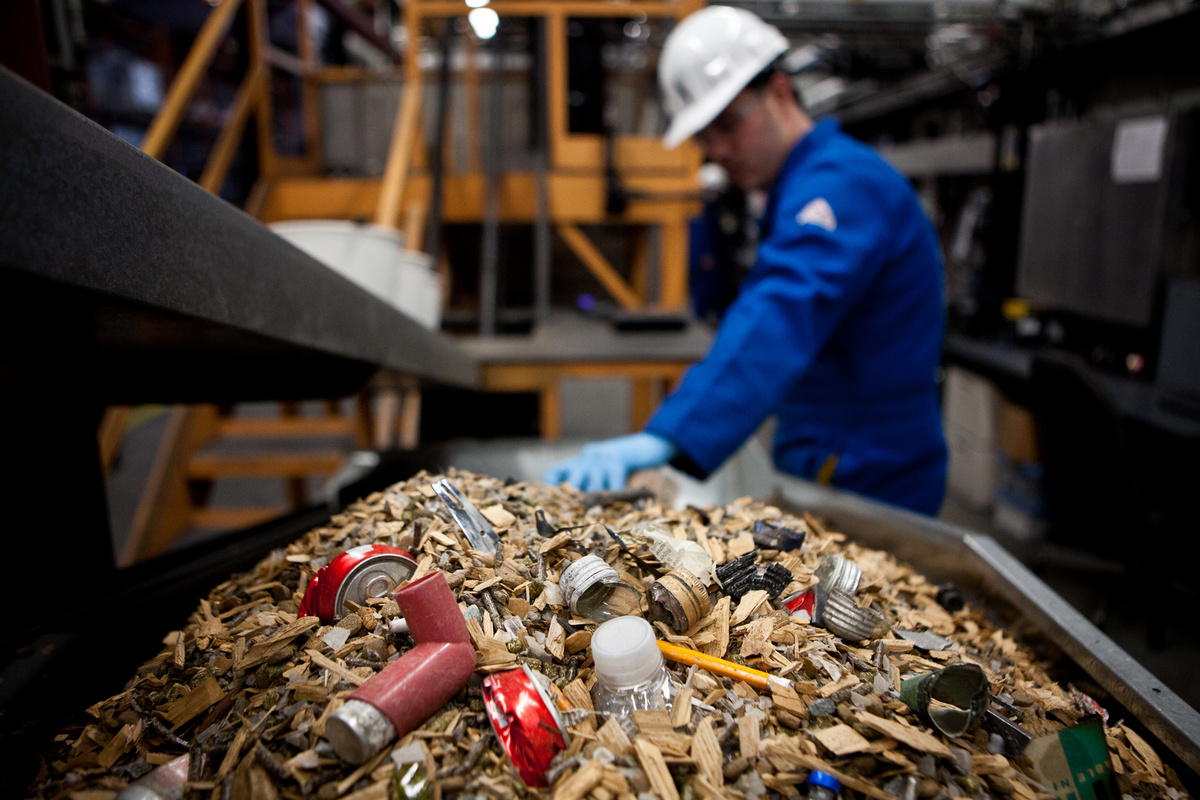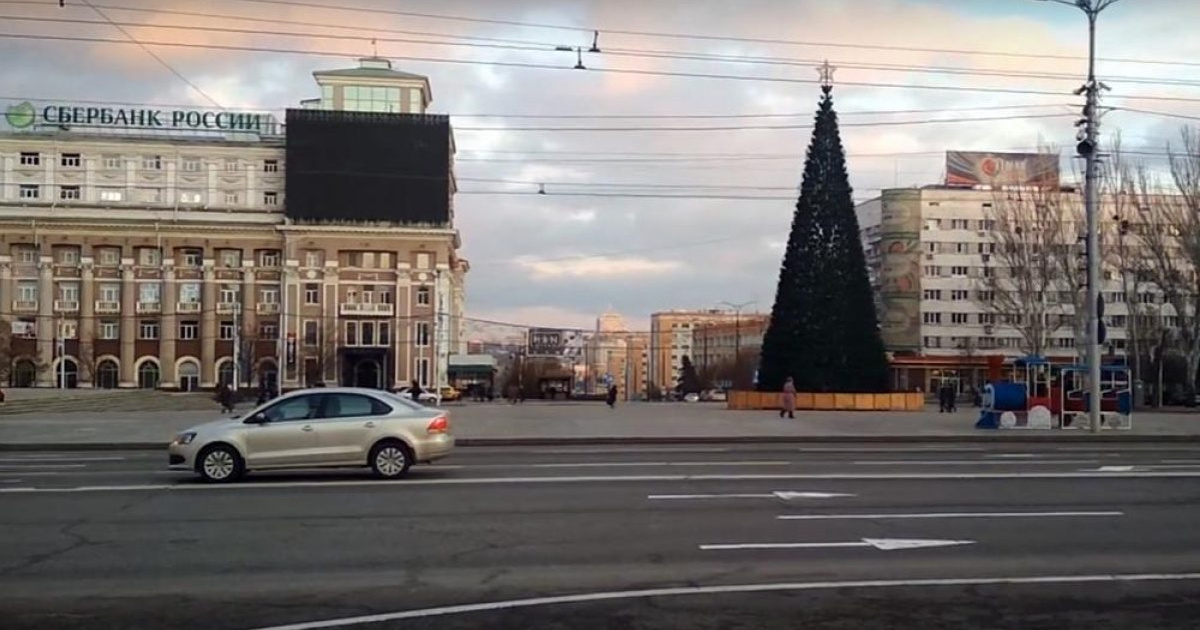Nearly 41,000 homes have been damaged or destroyed in Donetsk oblast since the start of the full-scale invasion. Among them are 4,184 apartment buildings and 36,792 private homes. These are official figures from the Department of Housing and Communal Services of the Donetsk Oblast State Administration. Thanks to the state program eVidnovlennia (eRecovery), homeowners of such properties have the right to compensation.
During an official briefing, the head of the department, Larysa Husieva, provided statistical data. Since the program's launch in May 2023, residents of Donbas have submitted over 10,000 applications for state aid to restore damaged housing.
Relevant commissions have made 6,586 positive decisions. The state owes UAH 78.8 million (USD 1.9 million) to people who have applied for compensation for damaged housing. However, there is hope that all sums will be paid, Husieva noted.
Additionally, 239 applications were delayed. The department explained that, due to heavy workloads or unsafe situations, the commission cannot always inspect damaged properties in time. When this happens, the application review is paused, but this does not mean the application will be ignored. Once conditions permit, the commission will conduct an inspection and make a decision.
Regarding completely destroyed homes, Donbas residents submitted 4,874 eVidnovlennia applications. Of these, 955 positive decisions were made, totaling UAH 1.5 billion (USD 36.5 million). There are 1,125 delayed applications, and decisions on them will eventually be made—at least, that's what the department says...
Left without a home, documents or money
The home of Myrnohrad residents Olha and Oleksii (the family asked not to disclose their last name) was hit three times by shelling during the war. The first two times, their windows were blown out. Then, there was a direct hit. The family was saved by a trip to the garage to get some canned goods. They survived, but they were left without a home, documents, or money. Everything burned down in the destroyed apartment.
"We were already prepared for evacuation: our things were packed, and the next day a truck was supposed to come to move our belongings to a safe place. In the morning, our daughter went to her grandmother's, and my husband and I went to the garage to grab some canned goods. We left the house ten minutes before the strike. Thanks to that, we're alive. All we have left are my phone and the keys to the apartment", - Olha recounts.
This happened in mid-July. The family stayed in Myrnohrad for a few more days. They called the police to document the destruction of their home, waited for the expert commission, and helped Olha's parents prepare to leave. After the last missile strike, they also decided to flee Myrnohrad. The whole family moved to the Cherkasy oblast, where they rented a small house in a village in exchange for paying utilities.

Their home in the "Zakhidny" neighborhood of Myrnohrad, where Olha and Oleksii had lived, is now a wreck
"At the new place, we first had to restore all our documents: passports, our daughter's birth certificate, property ownership documents, our diplomas, etc. All of this cost money, which we had none of. The nearest government offices are in Cherkasy. A ticket costs UAH 150 one way, and there were many such trips", - Olha explains.
With the help of lawyers from the international charitable foundation "Angels of Salvation", they managed to restore their passports and obtain IDP (internally displaced person) status. Next on the list are professional diplomas so they can find jobs. Friends and colleagues also helped by collecting money. The family also received payments from the UN. And unexpectedly, two months after submitting their documents to the eVidnovlennia program, Olha received a financial certificate.
"Now we need to find a home that someone is willing to sell through the program. Not every seller wants to deal with the certificate. We received one million hryvnias, and while we're figuring out our housing situation, the money could lose value. We also need to finalize ownership rights for our destroyed home. All of this requires time and money. They compensated us for the apartment, but all other expenses we have to cover ourselves", - Olha concludes.
Main shortcomings of the program
The state eVidnovlennia program indeed offers a significant advantage, specifically the possibility of obtaining new housing to replace what was destroyed in the war. However, the registration process is quite complex and lengthy, with many details and requirements. One of the biggest issues is that not all sellers are willing to cooperate with the state program, which can complicate finding new housing.

Lawyer Khazangiul Mamedova, from the Investment Lawyer Group (ILG), discussed the main challenges faced by owners of destroyed housing when applying for the eVidnovlennia program.
"First of all, owners see risks in the fact that the funds are transferred within five days from the moment the contract is signed. This means that ownership is already considered transferred, but the seller has not yet received the funds", - the lawyer notes.
Another important risk is that the payment under the program is made in national currency, while sellers prefer to conduct transactions in foreign currency, making the process highly dependent on exchange rate fluctuations.
"Another significant disadvantage for buyers is that the notary places a temporary restriction on the sale of housing purchased using a housing certificate for five years", - says Khazangiul Mamedova.
Thus, according to the lawyer, the eVidnovlennia system is an important tool for supporting those affected by the war, but its implementation requires improvement to remove barriers and speed up processes.
What practice shows
Mariia Samarina, the owner of a real estate agency, shared how the state program works in practice and what those who use it should pay attention to.
"I want to start by saying that the first step for the owner of destroyed housing is to contact a notary. Before applying for compensation, it is necessary to check the property. This is done to settle the ownership rights for the destroyed apartment or house. There are different situations that can become obstacles to successfully completing the deal within the eVidnovlennia program", - Mariia notes.
For example, she had a case where a couple bought an apartment during their marriage, and later the husband passed away. The wife and children opened a case to claim the inheritance, but then the war began, and the apartment was destroyed. The woman applied for the program, but the notary could not process the transaction. To settle the ownership of the destroyed property, all family members first had to claim the inheritance.
"In this case, my client had to start everything over. She needed to resolve the inheritance matter, gather the documents for the state program again, wait for the certificate, and then request the funds from the state. That’s why our agency always checks documents with the notary to avoid delays in the future", - explains Mariia Samarina.
Once the old housing ownership is settled, funds can be requested. After the money is credited to the account, the next step is to select and verify the new housing. Mariia Samarina advises working with a team of a lawyer and a notary. Each specialist is responsible for their own areas. The notary checks the property ownership documents, while the lawyer looks into legal aspects, such as ongoing court cases or liens on the property.
"If everything is in order at this stage, timelines are agreed upon between the seller and the buyer. It is advisable to have a certain amount for a deposit to the seller, known as a down payment. On average, this is about $1,000. After the deposit is transferred, there are thirty days to purchase the property. That’s how long the requested funds remain in the account. If the deal does not go through within this period, the funds need to be requested again. Therefore, it is better to make the deposit when the funds have already arrived in the account", - says Mariia.
She notes that sellers are not very eager to work on a cashless basis. However, this happens because property owners are not informed that this is the safest arrangement. The money is protected by the state and will definitely be credited to the account after the property is processed under the eVidnovlennia program. The key is effective communication. It is the real estate agent's job to professionally explain all the advantages of such an agreement.
"By law, all transactions exceeding UAH 49.000 must be made through a bank. This is only beneficial for individuals, as it provides official confirmation of the money's origin. This is necessary, for example, for traveling abroad, etc. The only nuance is the fluctuation in the dollar exchange rate since the housing market in Ukraine is tied to this currency. But this can also be addressed. When entering into an agreement between the buyer and the seller, it is essential to factor in a certain amount for currency fluctuations", - the real estate expert shares.
From Mariia Samarina's experience, the US dollar exchange rate fluctuations within a month are not very significant. However, due to the limitation on withdrawing funds, the buyer converts them into cash in several parts, so a certain amount is lost due to bank fees. Therefore, the real estate agency mitigates risks through a responsible custody agreement as a neutral party.
If the seller withdraws the cash, converts it at the current dollar exchange rate, and reaches the agreed transaction amount, the buyer does not need to pay anything extra. If not, the difference is covered by the amount specified in the contract.
There is no need to fear selling property under the eVidnovlennia program. If you work with professional realtors, notaries, and lawyers, everything will go smoothly for both parties.
"Even the detail of the five-day payment window after the sale agreement is not an obstacle. To prevent real estate sellers from worrying, the notary specifies in the contract that the transaction is being conducted on a cashless basis. There's a separate clause that states the deal is valid upon full payment. If the money doesn’t arrive, everything is canceled", - says Mariia.
According to Mariia Samarina, transactions under the eVidnovlennia program in her practice took between two weeks to a month, depending on the readiness of the documents and the speed of the notary’s work. So, it’s entirely possible to complete the process within the month while the funds remain in the account.
Olena Yermolenko, for OstroV
The material was created with the participation of CFI, Agence française de développement médias, as part of the Hub Bucharest Project supported by the French Ministry of Foreign Affairs.




